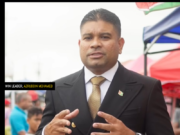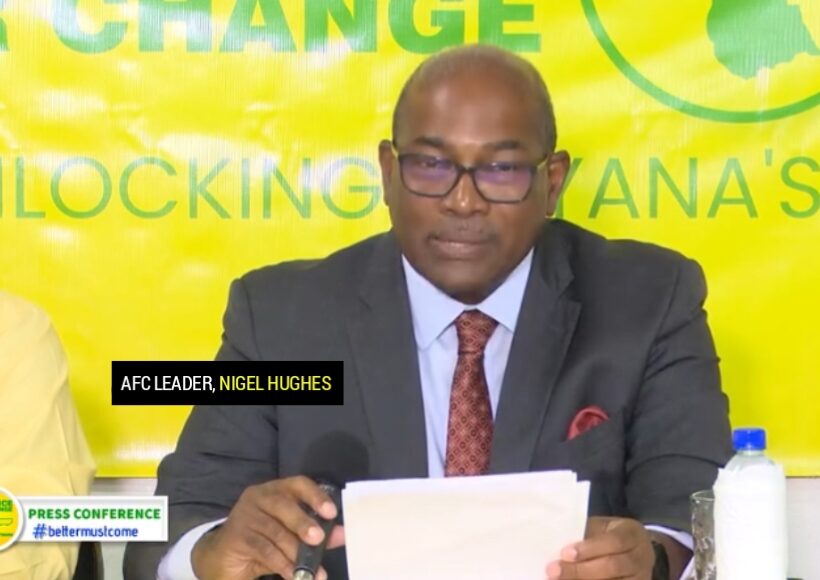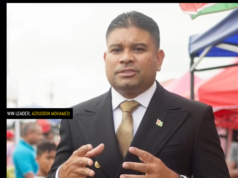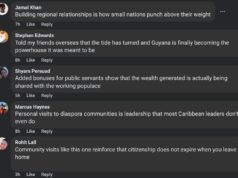Leader of the Alliance For Change (AFC), Nigel Hughes, has firmly rejected suggestions that he is to blame for the breakdown of talks aimed at reviving a coalition with the A Partnership for National Unity (APNU).
During a press conference today, Hughes maintained that the AFC acted in good faith throughout negotiations, even offering to compromise on several key matters, including stepping aside as the presidential candidate, to pave the way for a united opposition front.
Hughes explained that the 2015 Cummingsburg Accord between the AFC and APNU expired in 2022, and the AFC’s National Executive Committee had already passed a resolution in July that year not to renew it. This decision, he pointed out, was made before his return to politics.
“When it became evident that we would not reach consensus, I personally engaged the APNU leader and offered alternative names, including Carl Greenidge and Terrence Campbell. All were rejected,” Hughes stated.
He further revealed that while the AFC proposed starting negotiations by discussing a coalition policy platform and postponing the presidential candidate debate until later, APNU’s team insisted on making the presidential candidate the sole agenda item.
He said that there is a document signed by both parties showing what the AFC wanted to discuss, but APNU’s negotiators were only interested in naming a candidate.
He also disclosed that the AFC had proposed reducing its demands from 40% to 35% representation in the coalition, only to be told that APNU had already selected both its presidential and prime ministerial candidates, decisions which were labeled “non-negotiable.”
Hughes emphasized that the AFC’s suggestions for consensus candidates, none of whom came from the party, reflected its willingness to prioritize country over party. “This is not about Nigel Hughes,” he declared. “Guyana is bigger than all of us.”
“So, I just want to put that on the record for those who are suggesting that somehow, either I became the obstacle, or I somehow tried to sabotage the development of arriving at a place where a coalition could be headed by someone who could unite the opposition and contest in the upcoming elections.”













